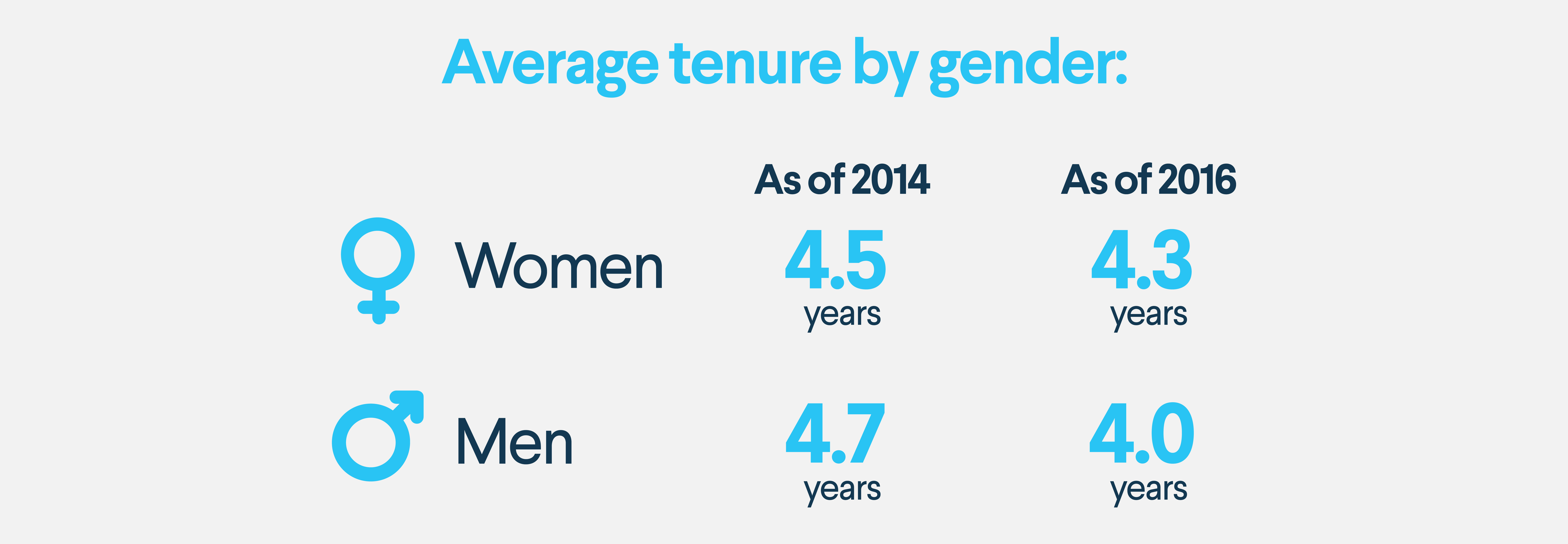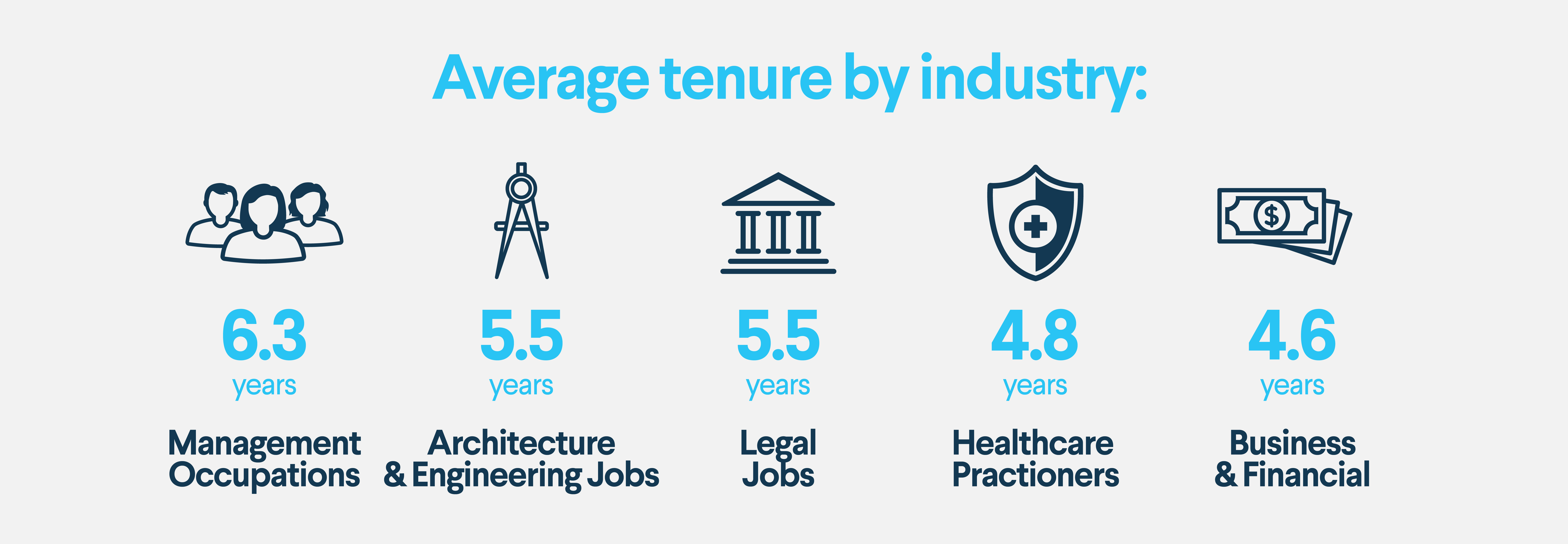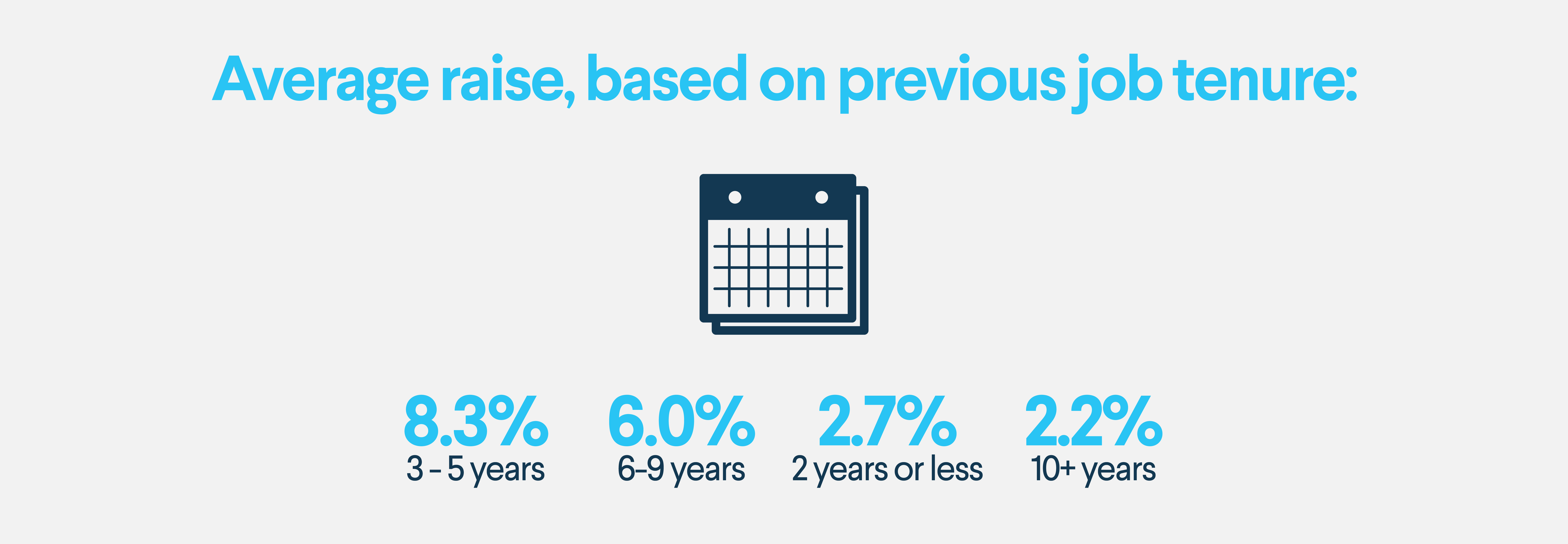Trading Up for a New Job in 2017: Here’s Your 6-Step Game Plan
Is 2017 the year you score a new and exciting job? If so, you’ll need a plan. Whether you want to move up within your current organization or land a bigger, better position elsewhere, here are six steps to help you think through your game plan.
1. Check your career’s vital signs
Forty-four percent of millennials are thinking about leaving their jobs in the next two years (see the sidebar for stats on the growing trend in changing jobs after a short tenure). If you’re among them, assess your internal options before jumping ship. Ask yourself: What have I done to fix problems and overcome challenges in my current position? If the answer is “nothing,” it’s time to figure out what you can do to improve your situation. That might mean having a somewhat sensitive conversation with a manager or another member of your team to find out what’s working and what’s not. When you find the solution, act on it. For example, if it’s a promotion you’re eyeing, think about what you’ve done—or have to do—to earn it.
Related: How to Crush Your Career Goals in 2017 and Beyond
You might not be in control of the opportunities available, but you are in control of how you demonstrate to the higher-ups that you’re ready to take your career to the next level. If you trust and feel comfortable with your supervisor, you can ask for career guidance. Better yet, if you’ve proven your abilities, you might even ask for the promotion. A bold move, yes, but when you are positive and proactive in your organization, it’s OK to ask for what you want. Remember, more often than not, it’s your manager’s workload that’s getting in the way of your advancement, not a lack of interest in your career goals. Good managers want you to succeed because your success makes them look good, too.
2. Connect with your network
Most job seekers try to keep their search in stealth mode, but that’s not always the way to go. While you probably don’t want your supervisor to know you’re on your way out, there’s nothing wrong with discreetly letting your trusted network in on your career aspirations and desire to make a move.
The old career adage “It’s who you know” still seems to ring true, as 85% of job seekers find their new roles through networking. Check in with your mentors and any reliable colleagues within the industry and let them know you’re seeking new opportunities. While they may not have an immediate job lead for you, you’re sure to get some advice on how to stay engaged in your current role until you find a better opportunity.
3. Consider that the grass may not be greener on the other side
If you’re unhappy at work due to persistent problems, step back and evaluate the situation before making an abrupt departure. Are the problems within your team, the company as a whole, or in your entire industry? If they’re with your team, rethink workflow and collaboration practices before your next project. If the issues are unique to your place of employment, then yes, you might be happier with a professional change of scenery. If they’re industry-specific, talk to others in your field to get their take on similar situations; if you don’t, you’ll likely find the same problems waiting for you at another company.
But what if, after some serious thought, you realize the issues stem from your own attitude? Whenever I face a challenge in my career, I always remember something I learned early on: If I don’t like something, I need to try to change it—but if I can’t change it, I have to adjust my attitude. That’s really what it comes down to, right? If you don’t make the effort to influence change in yourself, the same problems will just follow you from job to job.
4. Take money out of the equation
It’s time to let go of the notion that the better your paycheck is, the better you are as a person. Sure, you want to increase your salary as you advance in your career. In fact, you might even lose out if you don’t switch jobs every few years. But before making a move based mainly on a salary bump, consider how a better paycheck compares to a better opportunity for you to learn and grow in your field while accomplishing great things.
Let’s say you’re offered a new job that pays less than your salary requirement. It may not be ideal financially in the short term, but if you’re confident you can be the best in your position there, you may want to seriously consider it. You just might have a better shot at getting recognized and promoted in that capacity than at a job that pays more, but doesn’t fully tap into your skill set.
A paycheck is important—after all, there are bills to pay. But don’t let it define your total worth as an individual. Instead, place a higher value on your ability to learn, grow, and shine. Money and prosperity come from one place, and one place only—exceptional performance. In my opinion, using your unique gifts and talents to be successful at any organization is priceless.
5. Don’t burn your bridges
If you decide to leave your company, don’t go out in a blaze of glory worthy of a viral YouTube video—no matter how tempting it may be. After all, most people don’t quit jobs or companies—they quit managers. This tells me that what professionals are truly searching for—more than a higher paycheck or a better job title—is a happier and more supportive work dynamic.
Recommended: How To Have Uncomfortable Talks to Realize Career Success
A glance at my LinkedIn network shows that quite a few connections are boomerang employees; that is, they’ve returned to previous employers later on in their careers. It’s a move that was once frowned upon by hiring managers, but now 76% of employers say that they leave the door open for returning workers.
A boomerang strategy could work for you at some point, but only if you don’t burn your proverbial bridges by talking ill of a past employer. The best way to avoid this is to always remain professional, whether you’re speaking to a potential employer during a job interview or a chatty coworker during lunch.
6. Commit to your new employer, and manage your career
Some career strategists believe you should be on a constant job hunt, even when happy in your current position. I don’t think that’s necessarily realistic. When you start a new job, you’ll want to be 110% invested—but you can’t do that if you’re always looking for the next opportunity. You can always manage your career, however.
Stay in contact with your network. Check in with connections on LinkedIn, and set up lunch or coffee dates with others in your profession to see if they might be influencers. Attend networking events and stay in touch with the new people you meet. Even if you’re thrilled in your current position, keep your connections warm.
Of course, continuing to learn and grow will never fail you. Rather than always keeping one foot out the door, expand your skills and keep them sharp to become even better at whatever it is you do.
Read Next: Here’s How Far Your Money Will Go in The 7 U.S. Cities Millennials Are Moving To Most
Who’s switching jobs the most?
According to the 2016 Bureau of Labor Statistics (BLS) Employee Tenure Summary, the median number of years that wage and salary workers spend with their current employer is on the decline, signaling the growing trend in changing jobs every four years (on average).
Here’s how that data breaks down further:




What can you earn with a job change?
So, when should you switch jobs or ask for that promotion? It appears employers like to see you spend at least two years at your past employer before ponying up a bigger paycheck. But be careful not to overstay your welcome—your chance at a raise declines significantly after five years.

Is 2017 the year to boost your career? Connect with a member of our career coaching team for more advice on career advancement.




Good post, Mark! To your 4th point, I like to consider the job my current job is preparing me for. Certain jobs can have a multiplying effect that make them better than their current value.
This is sound, deceptively simple, advice for managing your career. It is not always easy to ask for what you need, be the bigger person, really dig in reflect on yourself, intentionally stay connected to your network and think about the bigger picture. Yep. It is those deceptively simple things that make people most fulfiled at work( and life).
I’m interested in financing my invention to a product sample. I have been trying to find information on that in your websitr.
Insightful post!